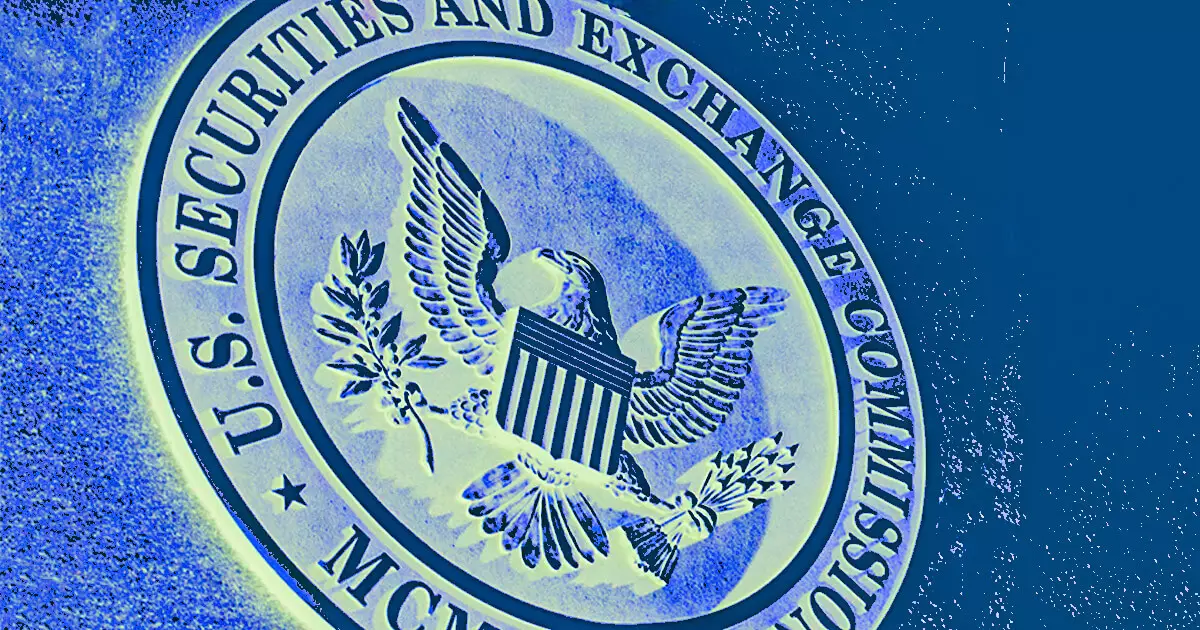The regulatory landscape surrounding non-fungible tokens (NFTs) has become increasingly contentious, as illustrated by a recent enforcement action taken by the Securities and Exchange Commission (SEC) against the Flyfish Club NFT collection. SEC Commissioners Hester M. Peirce and Mark T. Uyeda have publicly criticized this decision, highlighting significant concerns about the applicability of securities laws to NFT transactions. Their dissent not only raises vital questions about regulatory overreach but also illuminates broader implications for the burgeoning NFT marketplace.
Flyfish Club, an exclusive dining experience that sold NFTs as membership tokens for access to a restaurant and bar, generated substantial revenue. With approximately 3,000 NFTs sold and a total of $14.8 million raised, the venture appeared to thrive in the intersection of culinary arts and digital investment. However, the SEC’s intervention, which resulted in a hefty civil penalty and mandated compliance with certain regulations, has sparked debate about the definition of securities in the NFT context. Peirce and Uyeda contend that NFTs should be classified as utility tokens that grant access to experiences rather than as securities requiring stringent regulatory oversight.
The dissenting commissioners articulated their view that the SEC’s application of the Howey Test—used to determine whether an asset qualifies as a security—was misplaced. They contend that Flyfish NFTs were designed to deliver specific future experiences, rooted in the concept of trust between customers and the establishment. By utilizing the restaurant experience as a reference point, Peirce and Uyeda emphasized the need for regulatory frameworks to account for the unique characteristics of NFTs that differ from traditional securities. Their argument underscores the necessity for regulators to provide clearer guidance that can foster innovation without stifling creativity due to legal ambiguities.
The SEC’s enforcement actions and regulatory warnings, including the recent Wells Notice issued to the NFT marketplace OpenSea, could have chilling effects on the entire NFT ecosystem. With strong statements from industry leaders like OpenSea’s CEO Devin Finzer, who defended creators against the SEC’s aggressive stance, there is a palpable sense of urgency in advocating for clearer regulations. Finzer’s assertion highlights the risks that such regulatory measures pose, potentially disrupting the engagement and entrepreneurial spirit within the creative community.
As the debate surrounding NFT regulations continues to unfold, it becomes increasingly clear that there is a pressing need for a measured approach. While the SEC’s desire to uphold investor protection is commendable, overreach can stifle innovation and undermine trust within the very industries it aims to supervise. The dissenting opinions from Peirce and Uyeda serve as a wake-up call to regulators to rethink their strategies and offer clearer guidance that balances oversight with the necessity for artistic expression and business innovation in the digital realm. As artists, creators, and investors navigate these complex waters, fostering a collaborative dialogue between regulators and the NFT community will be essential in cultivating a sustainable and thriving ecosystem.

